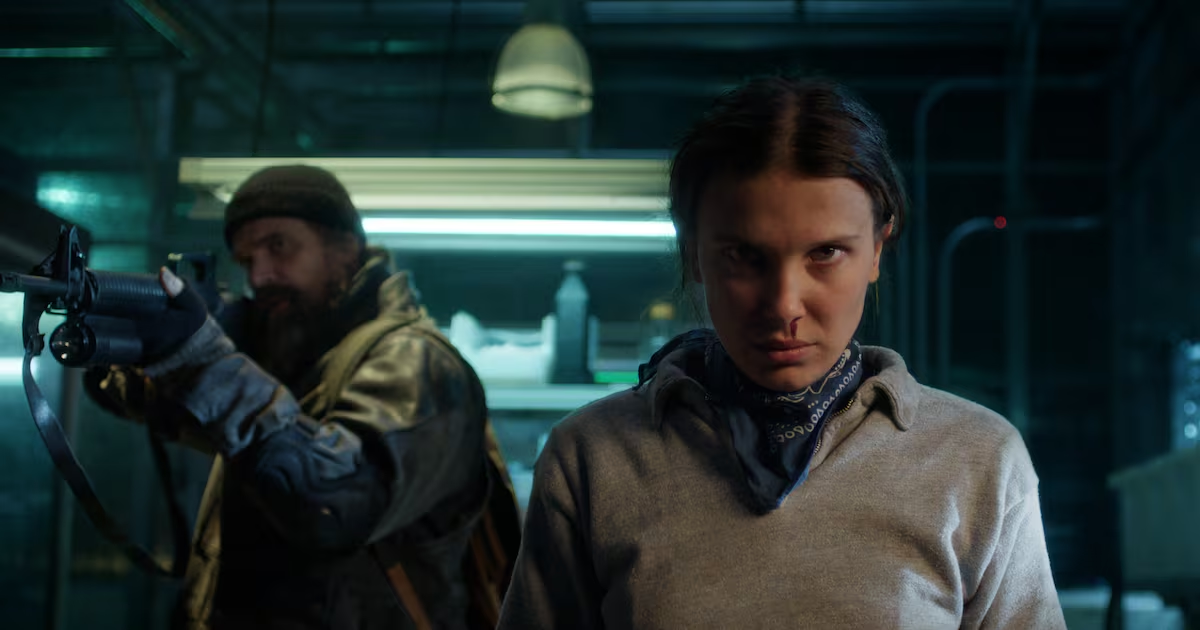Stranger Things on Netflix: Solid escapism hits the spot like an elixir from the TV gods

The 1980s nostalgia celebrated by Stranger Things is … well, a strange thing for the Irish viewer. While Americans of the time were breezing about on bikes and having adventures way past their bedtime, we in this country were trapped in an upside-down of economic dysfunction and a sense of living in what was virtually a failed State.
Yes, we had BMXs and played Dungeons & Dragons, but dads everywhere were losing their jobs (mothers were not allowed work – they stayed at home and sent you to the shops to buy cigarettes), and anyone who could leave did.
That situation would change by the late 1980s, but in the Stranger Things universe, the world is locked in an eternal merry-go-round from which none of the characters are permitted to depart. And so, as the show kicks off its fifth and final season, the residents of Hawkins, Indiana, are (once again) trapped in a struggle to the death with Vecna, the squishy villain named after a previously obscure undead wizard from Dungeons & Dragons.
[ Stranger Things has turned us inside out and upside down. Is the best yet to come?Opens in new window ]
It’s fine. Though Stranger Things was initially conceived as an anthology, with each year telling a stand-alone story, the success of the original run doomed its creators, Matt and Ross Duffer, to spend all their days in Hawkins alongside their cast of scrappy teenage protagonists. So it’s back to this Spielbergian purgatory, where nobody is ever allowed to really grow up or develop as individuals.
Yet to its credit, these four new episodes are crammed with thrills, spills and chills. Does it matter that we’ve seen it before – and done better, in the case of Stranger Things series four? Probably not – this is three-star TV all the way home, but, given the pressures on the Duffers to deliver, they’ve done well to keep the tension ratcheted up and to make us continue to care about Eleven, Will and the gang.
Netflix has had a patchy year, and its bad shows have been dreadful even by its increasingly slapdash standards. The company’s motto seems to be: why be good when mediocrity is an option? Among the dreck wrecking our feeds was the dreadful House of Guinness – a sort of paddywhackery enema that claimed the silver medal in the pantheon of terrible Netflix content set in Ireland (first place, now and forever, belongs to the apocalyptically atrocious Bodkin).
Given that general lack of quality, the streamer is therefore and understandably placing all of its bets on the return of Stranger Things. However, considering the yawning 3½-year break since the previous season, is there enough in this penultimate “drop” of a quartet of instalments to justify the hype?
The answer is yes, but only just. While series four was a Valentine to 1980s pop culture and expanded the universe to include California roller-discos and Siberian gulags, this time the action takes place entirely in fictional Hawkins – the Stranger Things playpen and, increasingly, prison.
Fans will have seen it all before – though of course, many will be perfectly happy. That said, the new series – which concludes over December – does feel as if it has reached its “later Marvel movie” phase, where the script is essentially a hall of mirrors of callbacks and in-jokes with little in the way of new ideas.
Did we mention that Vecna is back? Yes indeed. Having blasted an inter-dimensional gateway through Hawkins in season four, he has now retreated to brooding somewhere in the Upside Down. The naughty necromancer that he is, he continues to manipulate the citizens of Hawkins – this time focusing on a new batch of kids in a gaslighting fashion reminiscent of crooked clown Pennywise in Stephen King’s IT.
The heroes, meanwhile, are the familiar Hawkins gang. Millie Bobby Brown returns as Eleven, the urchin with ESP who finds her fate bound up with Vecna’s plans for Hawkins. There is also David Harbour – whose ears must be burning after the pasting he took in the new album by his ex-wife, Lily Allen – as Sheriff Hopper and Winona Ryder as the perpetually frazzled mother, Joyce.
[ ‘When I got the call I cried. It was wild’: Irish actor Amybeth McNulty on her role in Stranger ThingsOpens in new window ]
When Stranger Things arrived in 2016, audiences were charmed by how effortlessly it recreated the feeling of watching a classic Steven Spielberg movie for the first time. Nearly a decade on, that magic is obviously a lot more familiar and, consequently, considerably diminished.
But this is still solid escapism – hokum with a heart and a huge budget that yields a spectacular fight scene several hours in. It isn’t original and it is no longer very clever. But it will do – it hits the spot like an elixir from the TV gods.




